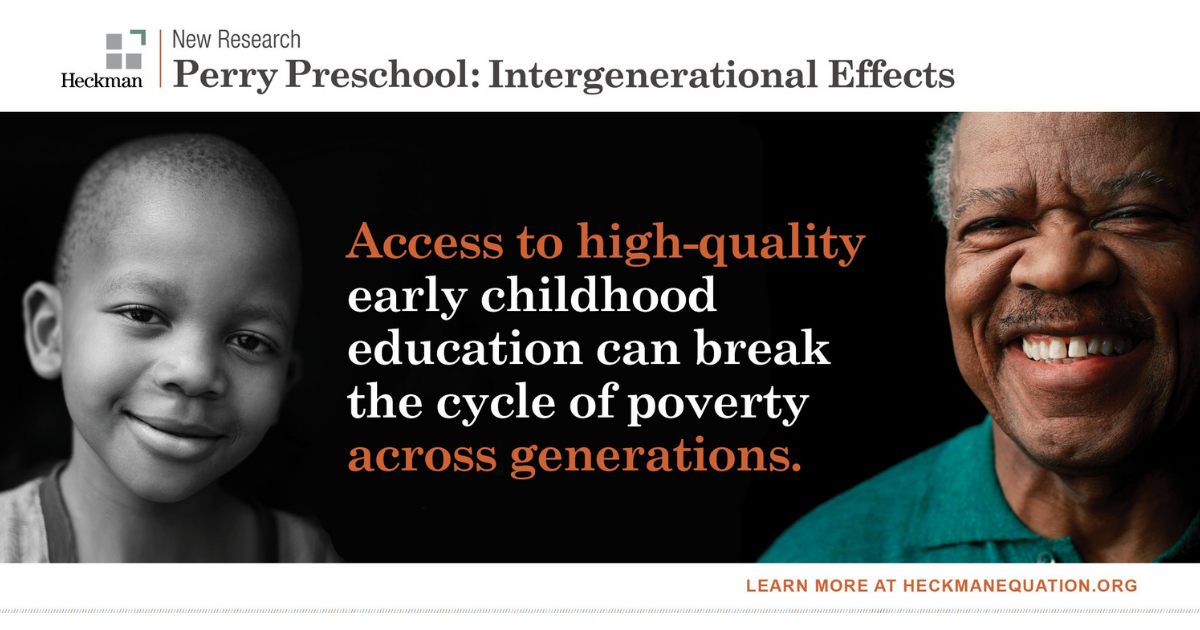Research: High-Quality ECE Strengthens Families and Can Break the Cycle of Poverty

A new analysis from Nobel laureate economist James Heckman finds that targeted, high-quality early childhood investments have the power to lift multiple generations out of poverty.
This research demonstrates the impact of high-quality early childhood experiences, as participants and their children saw significant increases in education, health, full-time employment and reduced incidence of anti-social behavior or crime.
Specifically, the new paper, Intergenerational and Intragenerational Externalities of the Perry Preschool Project, shows that effective early childhood development leads to better adult family lives, including:
- more stable marriages;
- greater likelihood of providing their children with a more stable two-parent home in which to grow up;
- having children slightly later in life; and
- remain stably married by the time their children turned 18
- 3x more time spent for all children
- 12x more time spent for male participants
The new data also indicates substantial second-generation effects on education, health, employment and crime for the children of participants, including:
- Completing high school without suspension (67% vs 40%)
- Never suspended, addicted or arrest (60% vs 40%)
- Employed full-time or self employed (59% vs. 42%)
This research is yet further evidence that investing in high-quality early childhood education can produce gains for disadvantaged children and deliver better outcomes for society.
Read the full study here.
Subscribe to FFYF First Look
Every morning, FFYF reports on the latest child care & early learning news from across the country. Subscribe and take 5 minutes to know what's happening in early childhood education.



